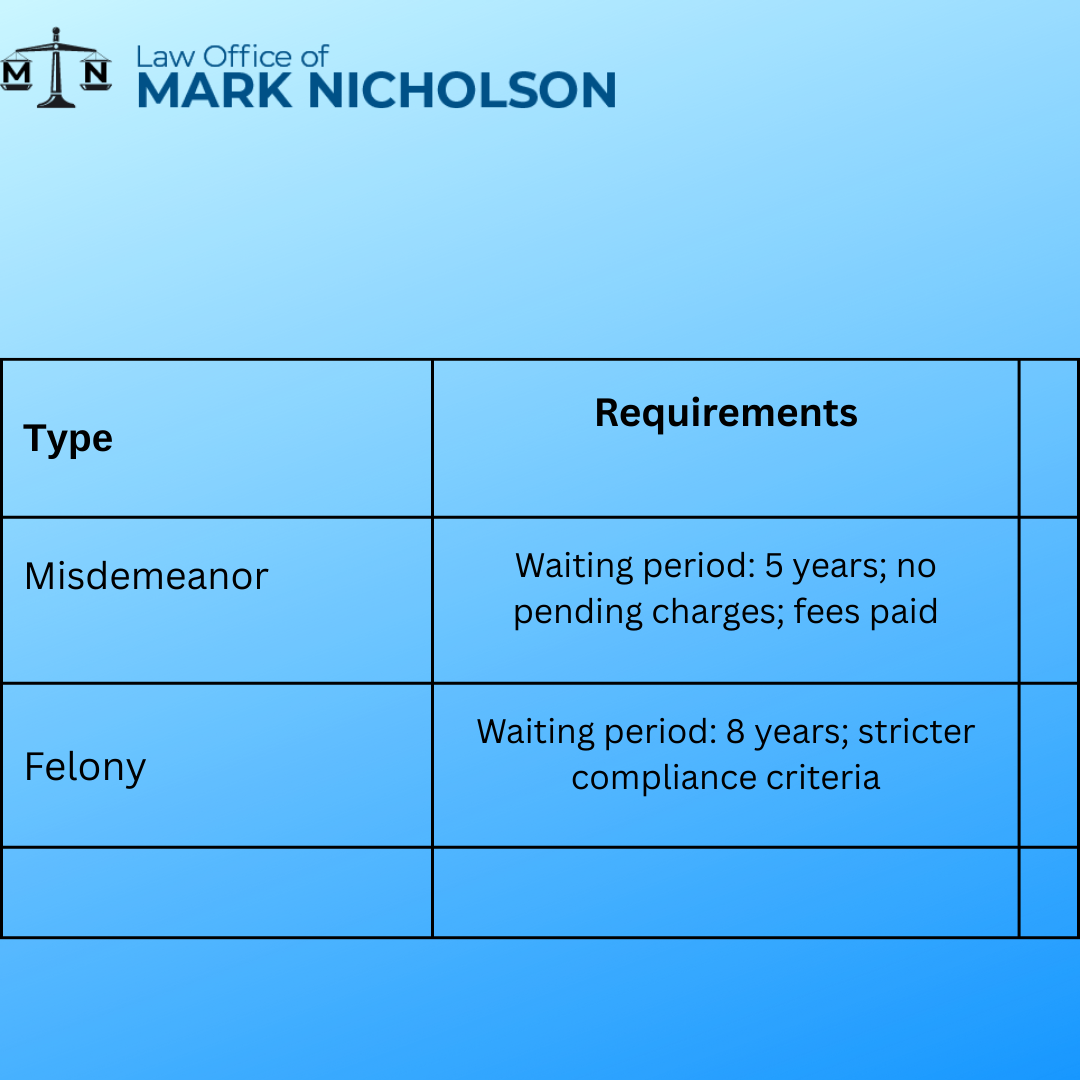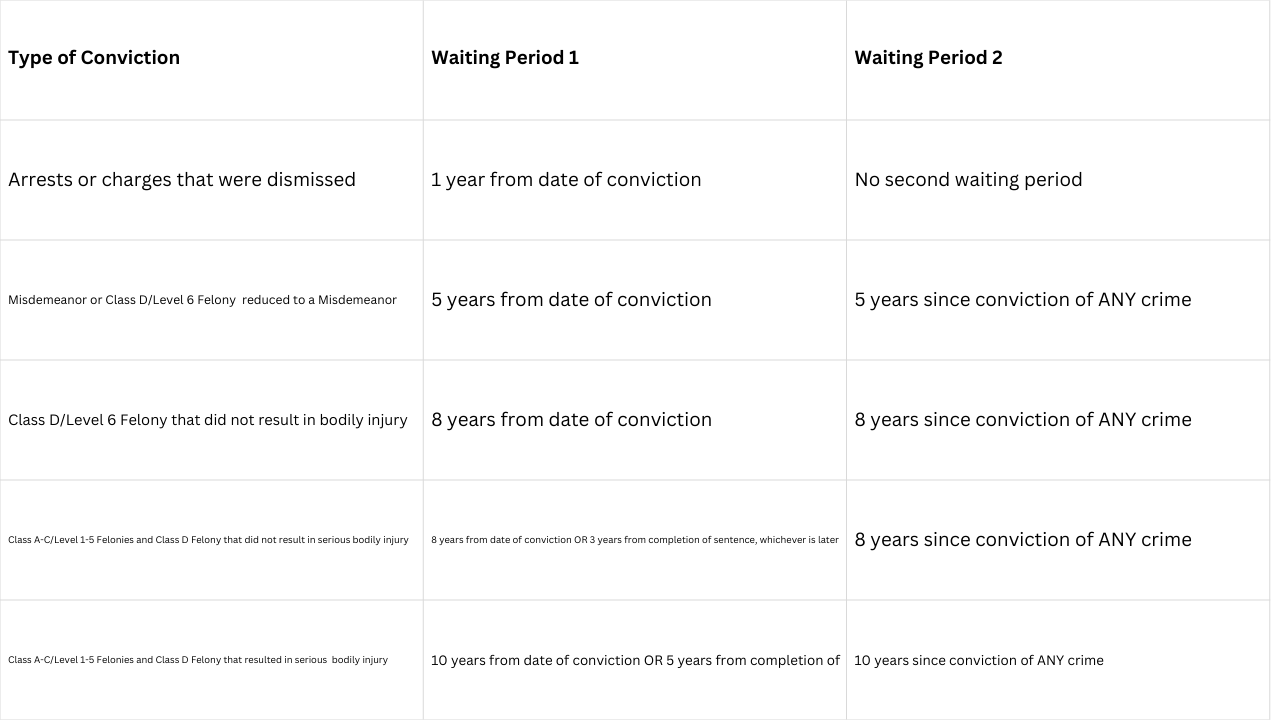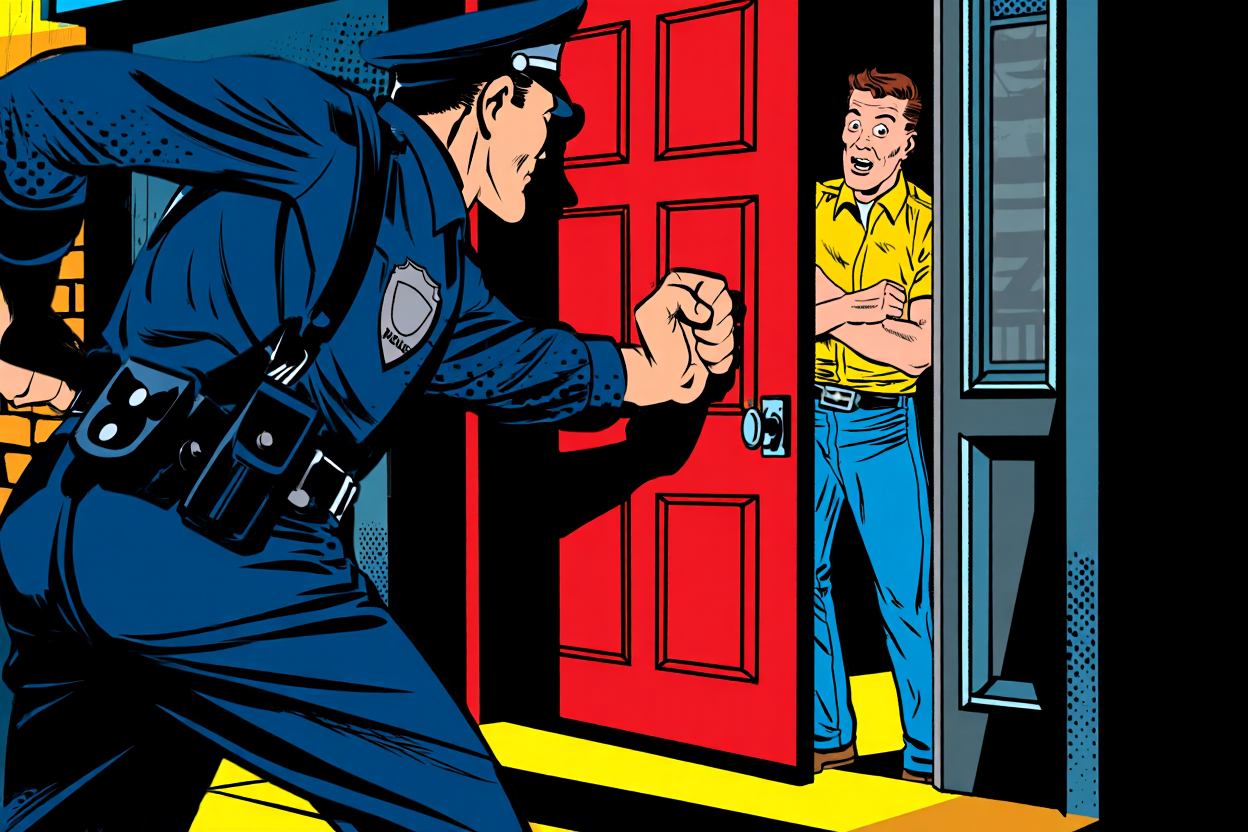Your Essential 2025 Guide to Expungement in Indiana
Indiana Expungement Lawyer

Indiana's expungement laws let people ask the court to seal old records from arrests, charges, or convictions. When your record is sealed, it is taken out of public databases. This means you do not face unfair treatment because of your criminal background. Employers, landlords, and others will not be able to use these records when they make choices that affect your life.
But to get an expungement in Indiana, you have to follow some strict rules. You need to meet the eligibility standards, have the right documents, and file proper petitions. Doing things the right way is very important to have your request approved. With a good plan and the right advice, you can use expungement to find new chances and move ahead.
What is Expungement?
Expungement is a law process that hides or takes away records of arrests, charges, or a criminal record from public access. This helps your criminal record not show up when employers, landlords, or schools check your background. When you get your records expunged, you get the chance to move past what happened before and remove some limits from your life.
After expungement, people can no longer see your record as it is covered up, which helps you get your privacy back. Law enforcement can still see your records for special reasons, but regular people cannot find them. This means you can avoid stigma and unfair treatment. This is important for people who want jobs or need a license, as the benefits of hiding a criminal record are clear.
The rules for expunging records change based on the kind of conviction, like a misdemeanor or felony, and how much time has passed since your sentence. No matter if you have a felony or a smaller charge, knowing the expungement process is important. This helps people get a fresh start in life.
The Importance of Expungement for Individuals
Expungement is important because it helps people get their civil rights back if they have a criminal record. With expungement, you can have another chance to vote, apply for certain licenses, or even own a firearm. It gives people a way to get back basic rights they may have lost and helps them join in with society again.
The federal Second Chance Act follows the idea behind expungement. It puts a focus on helping people recover and become part of the community again. Indiana has laws for expungement that work in the interest of justice. These laws help people move past their old mistakes, stop unfair treatment, and find new paths in both personal life and work. If someone does a criminal background check and sees your record, they may use it to deny you jobs and other services.
When your criminal record is sealed, you can feel better about yourself and take a bigger part in your community. Expungement means more than just fixing something on paper. It helps people start again and look for better days in a real way. This is about new chances, personal growth, and helping people do better for themselves and others.
Eligibility Criteria for Expungement in Indiana
To find out if you can get an expungement in Indiana, you have to look at a few things. You need to look at the type of record you have and the level of the offense. You also need to check if you have followed the waiting periods that the law says you must wait. You need to meet all your financial obligations, too. This means paying any court fines or fees. You also need to make sure that you do not have any charges that are still open.
It is usually easier to get an expungement for a misdemeanor than for a felony. Felony expungements take more time and you have to follow more rules. Knowing your eligibility to file your petition early can help you avoid delays when it is time to file. In the next section, we will go over the specific eligibility details for the expungement process.
Who Can Apply for Expungement?
Eligibility for expungement in Indiana is based on the type and seriousness of the criminal charges. You can usually file a petition for expungement if you have arrests that did not end in convictions, if your conviction was overturned, or if you have old misdemeanor or felony convictions.
People asking for expungement must do a few things first. There must not be any pending criminal charges. You need to finish any waiting time set by the court. You also have to pay off all court fees. If someone is still in a pretrial diversion program, they should wait until they finish before they try to get an expungement.
To file for expungement, you need to show that you meet eligibility rules. You must also collect and send all needed paperwork for a judge to review. The process can be hard to figure out. Working with an experienced criminal attorney can help make the process easier and can boost your chances of getting your petition approved.
Differences Between Felony and Misdemeanor Expungements
Expungements for felonies and misdemeanors are not the same in Indiana. This is because the crimes and the legal conditions involved are not as alike. The waiting period for misdemeanor expungements is often shorter. For felonies, people have to meet stricter deadlines and follow more rules.
If the felony is very serious, like if it caused harm to another person, the court uses extra judgment. Some felony records are not eligible for expungement. Judges can look at your rehabilitation and ask if it is good for the public before they say yes. For misdemeanors, people often get expungements as long as they meet the eligibility rules.

Knowing how these are different helps you be clear if you want to expunge your conviction records in Indiana.
If you answer no to the statements below, you are not currently eligible for an expungement.

You must usually wait a specific time after a conviction before filing for an expungement. However, if the County Prosecutor gives you written permission, you can file for an expungement sooner.
The Expungement Process in Indiana
The expungement process in Indiana has many steps. It is there to help only those people who have eligibility for record sealing. You need to start by filing a petition in the right court. After that, you have to give proof that shows your eligibility. Then, you must wait for the judge to approve and issue a court order.
The rules for misdemeanors and felonies are not the same. There are stricter guidelines for more serious crimes. It is important to do things at the right time, be accurate, and include every needed document. In the next sections, we will talk about how to apply and the key items you will need for your petition and eligibility in Indiana.
Step-by-Step Guide to Applying for Expungement
Filing an expungement starts with checking if you meet all the rules. This means looking at the waiting times, the type of offense, and your financial obligations. You need to be sure that you are eligible before you go ahead. When you are sure, fill out the petition and make sure you list all your conviction records right.
After preparing your petition, you submit it to the county court that handles your case. Don’t forget to include the other important papers. The court looks at everything to make sure you paid all your fines and that you followed the state law. The court will check with the prosecutor before making a decision.
If your request is accepted, the court gives an expungement order and seals your record. Then, they send out dismissal notices to the right state offices. These offices then update the public records so your information is no longer shown there. Expungement of records is not a simple process.
Required Documents and Information
For a successful petition, you need to have certain documents. These include court records, details of past convictions, and proof that you paid any fees. Each document is needed to show that you meet the eligibility rules.
A criminal attorney can help you get all these papers together. This person will also help with any disclosures, so you follow the laws in your state. When you prepare complete paperwork, you lower the chance for mistakes that could slow down your case.
If your records are wrong or if something is missing, your petition may not work out. Working with a criminal attorney helps make sure your filing is correct and on time. This gives you the best chance of your petition getting approved.
Indiana Expungement Lawyer
To sum up, it is important to know about this law in Indiana if you want to clear your record and begin a new chapter in your life. This process can give people a second chance. It helps make it easier to get a job, find a place to live, and enjoy a better life overall. When you learn about the eligibility requirements, what steps to take, and which papers you need, you will have a better idea of how to move through this legal process in Indiana. If you or someone you know is thinking about expungement of a criminal record, do not wait. Get in touch for advice and support through every step by contacting us at 317-219-3402.
Frequently Asked Questions
How Long Does the Process Take in Indiana?
The time it takes in Indiana can change depending on your case. It can take a few weeks or even a few months. Things like adjudication, waiting periods, and state police checking into your background are all part of the process. If you are careful about filing your papers the right way and make sure to pay all court costs, things can move faster.
Can Expunged Records Be Accessed for Any Reason?
Expunged records do not show up in public databases. However, law enforcement and public offices can still get these records in some cases. Sometimes, federal laws allow them to access this information. If interested parties want to see sealed records, they usually need court approval. This helps make sure that these records are not used for anything other than what is allowed by the law.
Click below to receive your FREE 2025 Expungement Guide




















